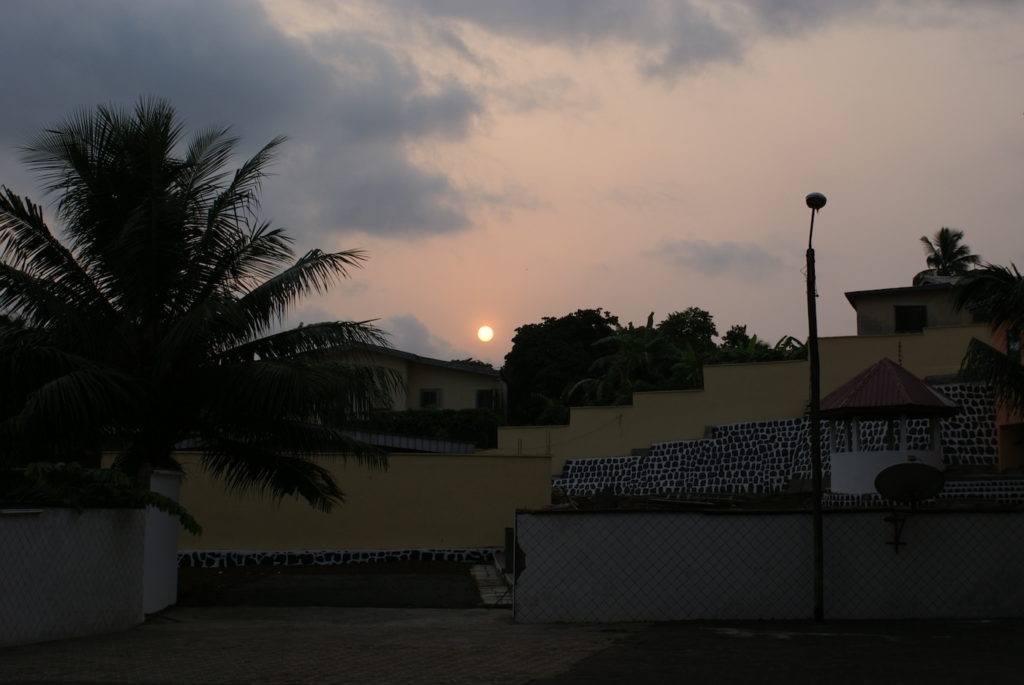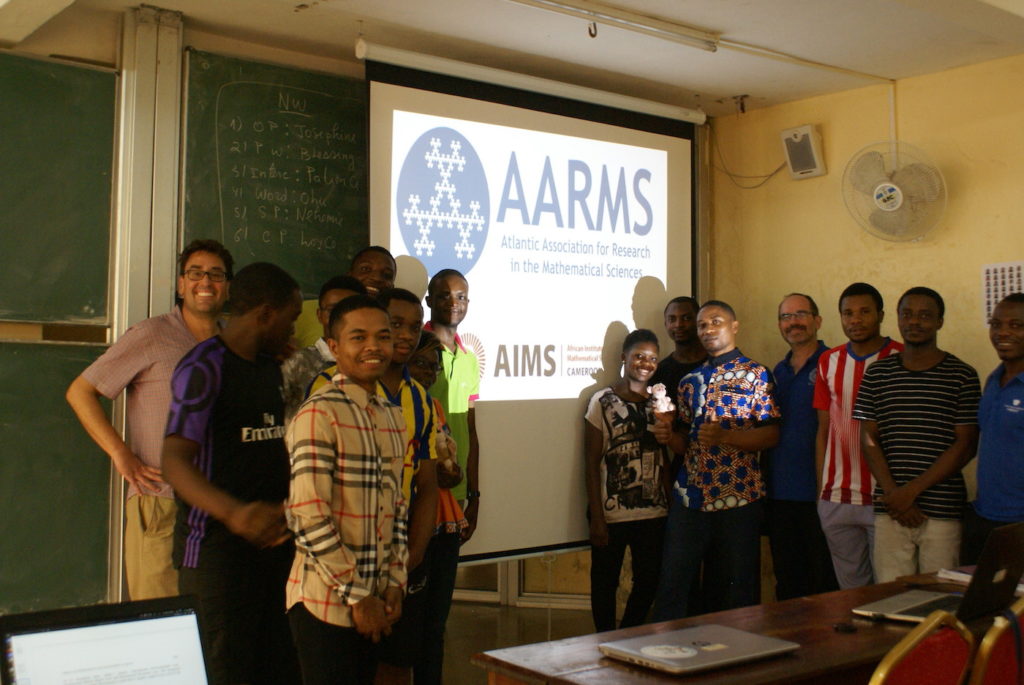
The following is an activity report written by Marco Merkli (Memorial University of Newfoundland) about his AARMS-sponsored visit to the African Institute for the Mathematical Sciences.
The African Institute for Mathematical Sciences, AIMS, is a pan-African network of centres of excellence offering talented students the possibility to obtain a degree of Master of Science in Mathematical Sciences. The program is concentrated in one year and consists of three phases: a skills phase, a review phase, and a research phase. During the three-month skills phase, all students follow the same compulsory courses, taught in three week modular blocks. During the following review phase, which lasts 5 months, students select eleven more specialized courses in mathematics among pure and applied mathematics, theory and applications, and they include interdisciplinary topics such as financial mathematics and climate modelling. Following the completion of the skills and review phases, the students carry out an individual research project (10 weeks). This phase ends with a written report and an oral examination in front of an examination committee. The academic year at AIMS ends with a graduation ceremony. The instructors and project supervisors are faculty members from various universities in Africa and worldwide. The partnership with foreign university ensures a high academic standard and promotes global postgraduate and research connections.
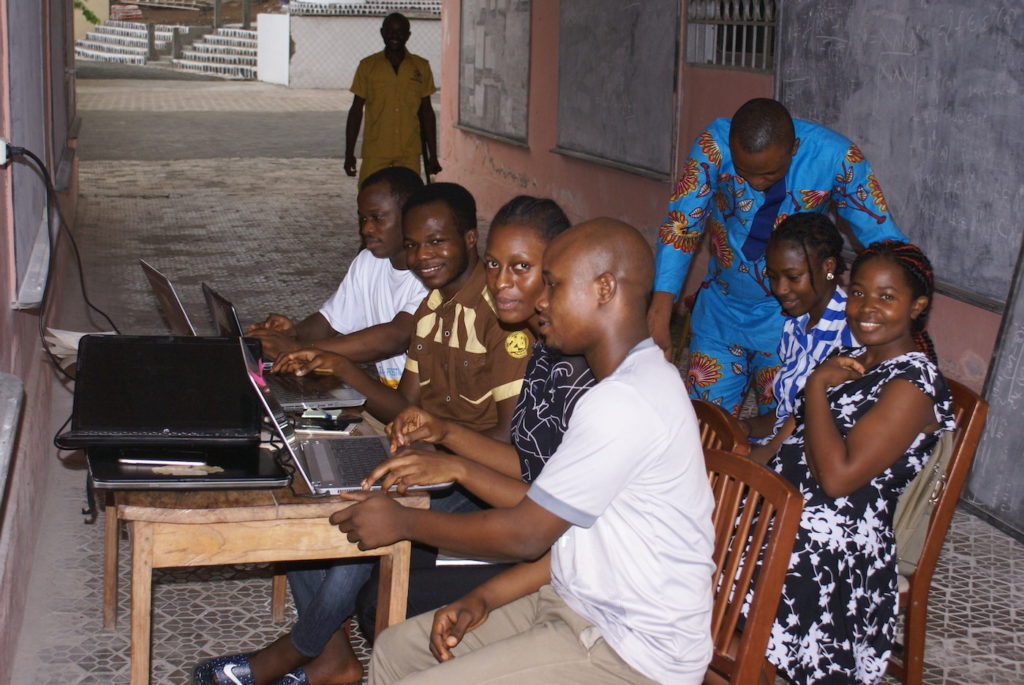
I had the opportunity to teach a review course entitled Open Quantum Systems at the AIMS Centre in Cameroon. This year’s class at AIMS Cameroon was comprised of 45 students (19 female) from 12 African countries. The students were selected from a large pool of applicants. During the three-week block when I was teaching, there were three other courses offered concurrently: Energy and Sustainability (lecturer from the Netherlands), Survival Analysis (lecturer from the UK) and Algebraic Topology (Academic Director AIMS Cameroon). The first two courses had an enrolment of about 35 students each, while algebraic topology and my course counted about a dozen students each. This shows a not-so-surprising preference for topics in applied mathematics and statistics. Many students have the desire to learn about subjects directly linked and applicable to current needs and developments in Africa. Nevertheless, a class size of a dozen master’s students in algebraic topology and in quantum theory is still decently large, when compared to most Canadian universities.
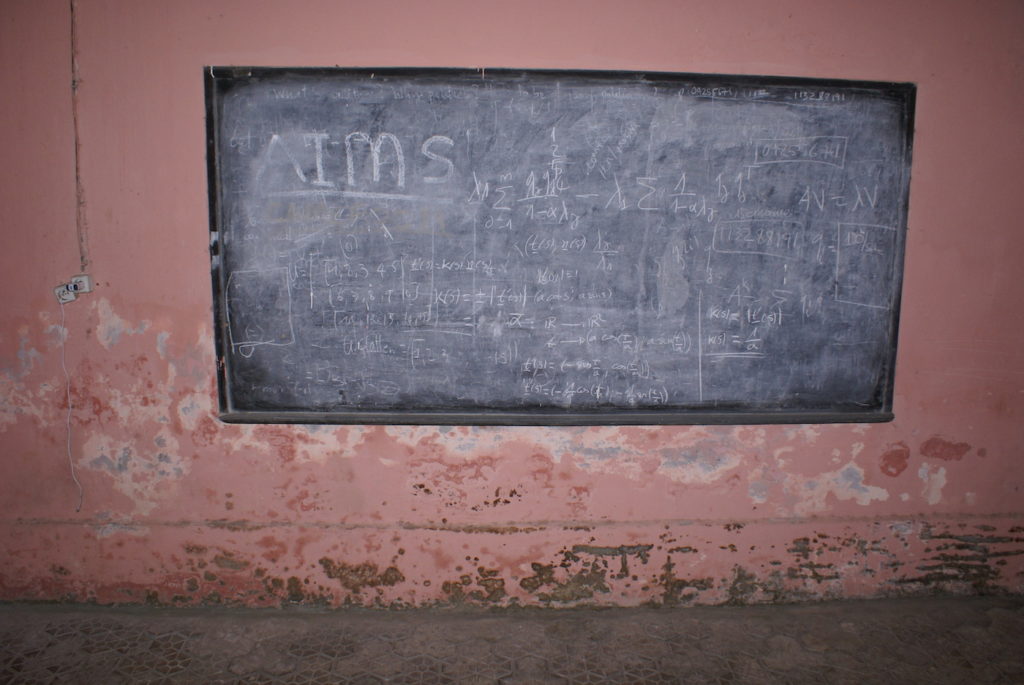
My course, Open Quantum Systems, was concerned with the theory of quantum systems under the influence of external noises. The theory describes generic noise induced features, such as decoherence, entanglement, and thermalization. They are of core interest in various branches of science: in quantum information and computation, chemistry, material sciences and even in biology. Basic familiarity with this theory is a good (and necessary) foundation for a more advanced understanding of most modern quantum sciences.
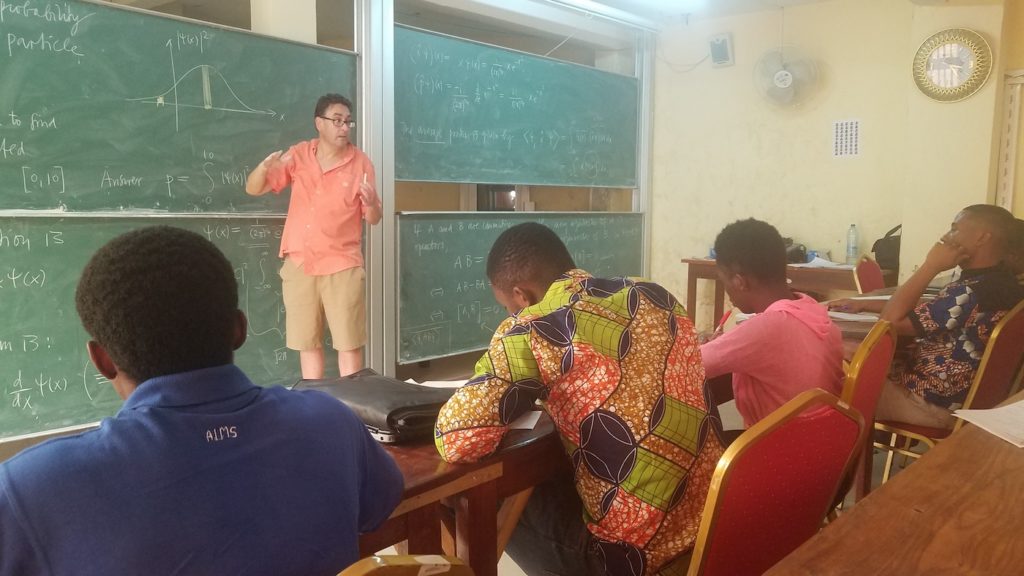
The course opened with a discussion of the four postulates of quantum theory. In order to keep the technicalities at bay, we focused mainly on finite-dimensional quantum systems, illustrating some infinite dimensional situations on examples. Most students had some background in quantum theory and were well versed in the use of the Dirac ket-bra notation, for example. On the mathematical side, the postulates involve basic probability theory and linear algebra. It turned out (as I had expected and prepared myself accordingly) to be a good idea to refresh in detail some mathematical aspects, such as the spectral representation of Hermitian matrices, functions of matrices, tensor products and the like. We then discussed completely positive maps, their physical interpretation and mathematical and structural properties (Kraus representation). This lead naturally to an introduction to quantum dynamical semigroups. We gave a proof of the Gorini–Kossakowski–Sudarshan–Lindblad theorem describing the standard form of generators of such semigroups. The last topic covered in the course was the microscopic derivation of the quantum markovian master equation. Even though the course material was, at times, somewhat technical and the classroom somewhat hot, the mood was very good: the students are inquisitive, appreciative and eager to learn.
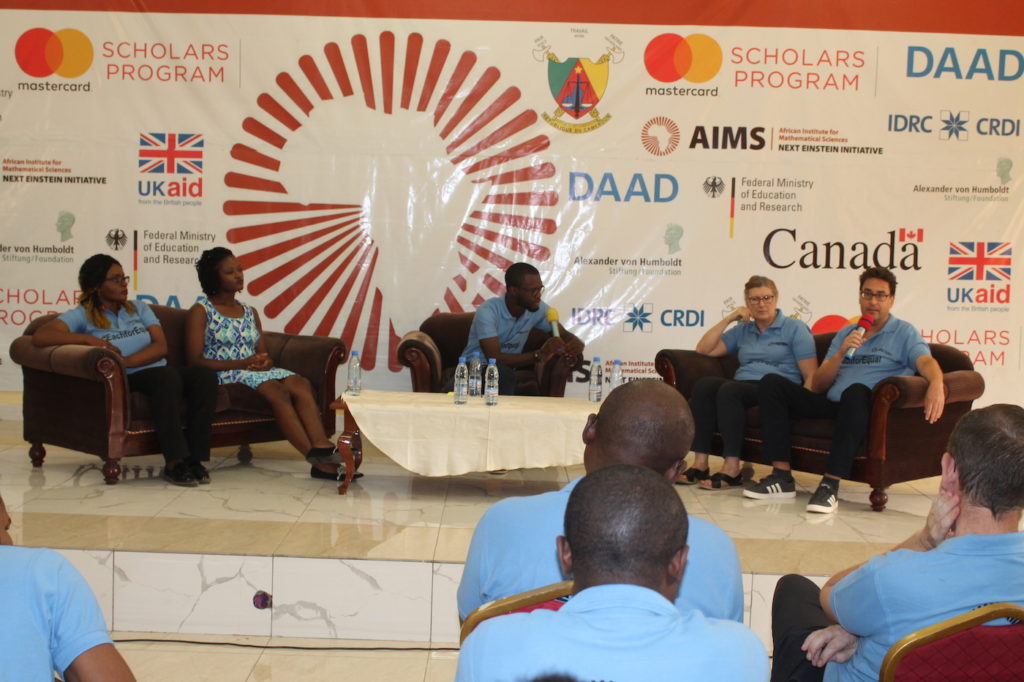
Besides teaching this course, I was able to participate in the events at AIMS on the occasion of the International Women’s Day. I was asked to be the male representative on a panel that discussed “closing the gap’’ and addressed issues surrounding the unfortunately always prevalent gender inequality.
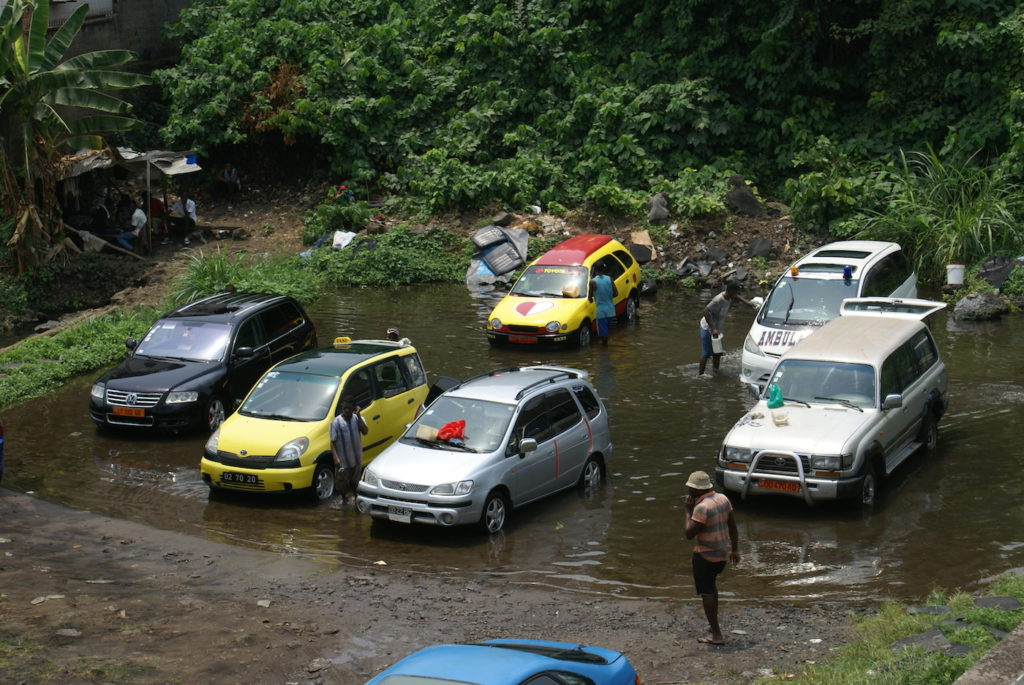
Limbe is a coastal town, about a 90-minute drive away from Douala. Life is relatively calm and people are very friendly and open. Before Cameroon’s current “crisis’’, Limbe was a tourist destination attracting (mainly national) guests. You find beach restaurants and resorts in and around Limbe. The temperature fluctuates slightly around 35-37°C day and night and the humidity is very high. Coming from the Canadian winter (the course started towards the end of February), this turned out to be a bit of a challenge. Luckily, the lecturers’ quarters as well as the offices and the classroom are equipped with air conditioning. Unluckily, power outages were extremely frequent, making the AC less effective and creating serious internet connection hick ups. The centre has a power generator which bridges over during some of the outages. You quickly adapt to the moody electricity and adopt the quite relaxed and positive attitude of the students and staff in this respect. In any event, you are not far away from several of the numerous “street-cafés’’ serving local beers in light and in darkness.

It is possible to explore the town by foot and, during weekends when more time is available, one can hire a driver and travel the countryside, visit different beaches and resorts and experience local foods. This is what we lecturers did together and resulted in much fun.
Experiencing the academic, cultural and culinary essence of AIMS Cameroon was a real privilege for me. I thank Marco Garuti, the Academic Director of AIMS Cameroon, my department Head JC Loredo-Osti, David Kribs who is the Canadian International Advisor for AIMS and Sanjeev Seahra, the Director of AARMS, and AARMS itself, for their support.
